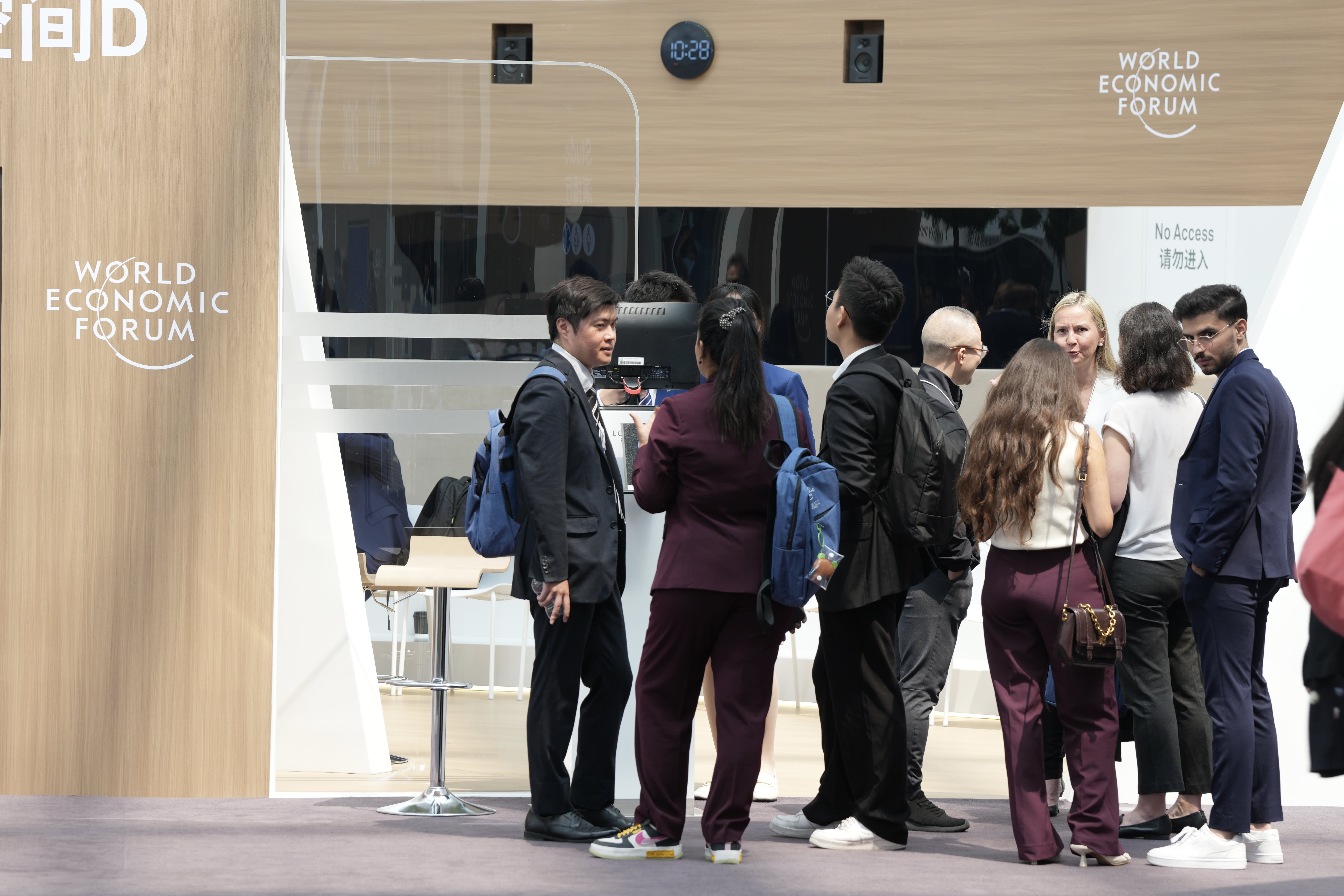Since 2007, the Swiss-based World Economic Forum has run a summer version of its Davos gathering in China, alternating between the cities of Tianjin and Dalian, both in the northern part of the country.
But as local Chinese governments have ramped up their own conferences and the overall economy has slowed, foreign businesses interested in China have not had to rely as much on Summer Davos matchmaking. Disruptions from the pandemic and U.S-China tensions have also taken their toll.
This year though, even otherwise quiet groups of attendees turned into slightly aggressive crowds to snag spots for select events including talks on artificial intelligence and the economic outlook.
Seats filled up fast for the release of WEF’s annual “Top 10 Emerging Technologies” report — now in its third year of collaboration with the Dubai Future Foundation. Previously, the report had been created by the forum with Scientific American.
Some prominent leaders took the opportunity to visit China. Singapore’s Prime Minister Lawrence Wong, Vietnam’s Prime Minister Pham Minh Chinh and Ecuadorian President Daniel Noboa Azín were among the top political leaders attending this year.
“The U.S. tariff shock has been a wake-up call for the Global South in general about the need to diversify,” Simpfendorfer said, citing recent conversations with businesses in Malaysia and Vietnam.
But he pointed out that it won’t be easy to shift from targeting one U.S. market to multiple Global South markets.
To attract trade partners, countries from Egypt to Vietnam to China are all trying to enhance their economic competitiveness.
“It’s a wake-up call for Chinese multinationals to build out genuinely international businesses,” Simpfendorfer said, adding that the learnings from the past two decades would no longer be a good guide for the next 20 years, given the transformational impact of artificial intelligence.
Egyptian Minister of Investment and Trade Hassan El Khatib told CNBC’s Chery Kang on the sidelines of the forum on Tuesday that the country aspires to be in the top 20 in business competitiveness by 2030, following a major reform program launched last year to spur private sector development. He emphasized Egypt’s labor pool and engineering talent, and noted how the country was courting investors from around the world.
As U.S.-China tensions remain far from resolved, more countries may be keen to take the Chinese premier up on his invitation to reshape the world.
— CNBC’s Bernice Ooi contributed to this report.
